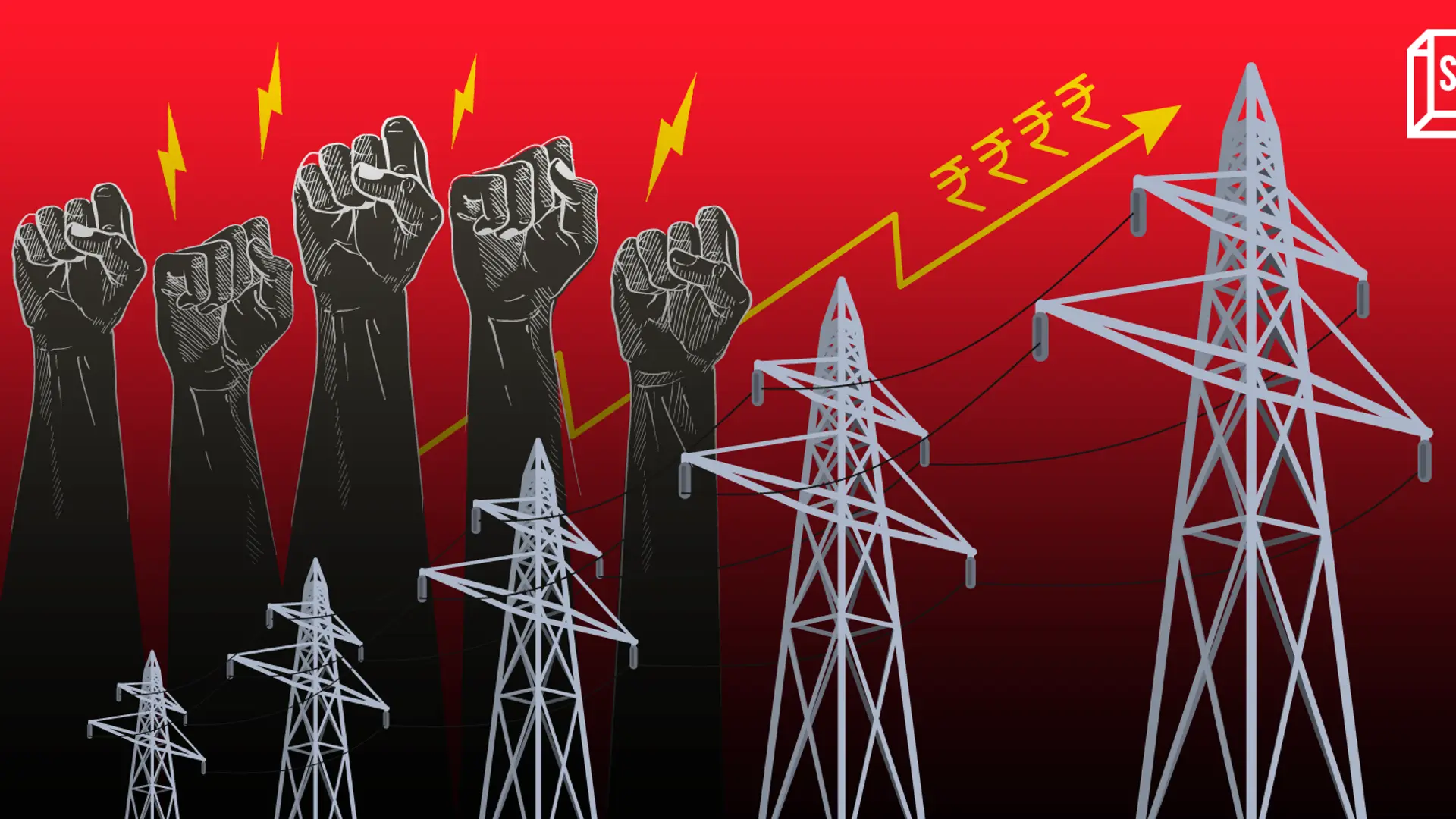MSMEs in Tamil Nadu unite over revised electricity tariffs
Tamil Nadu has the third-largest number of MSMEs in India. However, the manufacturing sector in the state is in peril due to soaring electricity tariffs. From September 11 to 24, MSME owners will individually send letters to the Chief Minister of the state to further highlight the issue.
On September 7, more than 3,000 owners of micro, small, and medium enterprises (MSMEs) from Coimbatore, Tiruppur, and Erode districts gathered for a hunger strike in Tiruppur. Their aim was to draw the attention of the Tamil Nadu government towards the impact of the increased power cost on their businesses, a burden they have been enduring for a year now.
The steep hike in demand charges and the introduction of peak-hour charges by the government in September 2022 have rendered their businesses economically unsustainable, small business owners say.
Members from industrial associations such as the Tamil Nadu Association of Cottage and Tiny Enterprises (TACT), Recycle Textile Federation, and Tiruppur Exporters and Manufacturers Association (TEAMA) took part in the protest.
TACT President J. James said that all MSME units across the state will individually send letters outlining their electricity-related demands to the Chief Minister, M.K. Stalin, through speed-post, courier, and e-mail. This action will take place from September 11 to September 24.
On September 25, MSMEs will display black flags at their units for a day.
SMBStory reached out to Tamil Nadu Generation and Distribution Corporation Ltd (TANGEDCO) with queries and is awaiting a response.
Demand charge hike

The tariff structure in Tamil Nadu is determined based on user type (domestic or commercial) and usage level (low-tension and high-tension). The tariff revision has notably impacted both low-tension and high-tension commercial users, especially MSMEs.
The key elements of an electricity bill comprise consumption charges (determined by the units used), fixed charges or demand charges (related to the sanctioned power supply in kW), peak-hour charges, and charges related to any special requests such as changing capacity or installing new meters.
Previously, the consumption charges were set at Rs 4.50 per unit for users with a supply of 12 kW or less. However, the new rates entail a cost of Rs 4.50 per unit for the initial 500 units consumed, and after that, the rate escalates to Rs 6.50 per unit for 600 units, and then it increases further.
For Senthil Ramasamy, a pump manufacturer from Coimbatore with 112kW demand (high-tension user), the consumption charges have risen from Rs 6.50 per unit to Rs 7.65 per unit.
The demand charges have surged by about 450%, increasing from Rs 35 a kW to Rs 154 a kW. Demand charges are fixed charges that a user has to pay every month based on the sanctioned power supply, irrespective of the units consumed.
“The YoY increase in consumption charges is fine but this steep hike in demand charges is not acceptable. We have 112 kW demand. The fixed charges have increased from Rs 3,920 per month to Rs 17,136 per month,” says Ramasamy.
The recently introduced peak-hour charges, which were not included in the billing structure until last year, have become an extra financial burden. The government cited TANGEDCO's (Tamil Nadu Generation and Distribution Corporation Ltd) financial commitments and mounting losses as reasons for the tariff hikes.
“These charges were introduced during a time when the MSME owners were already grappling with the economic repercussions of the Covid-19 pandemic, including high labour costs and high cost of raw materials,” says K.E. Raghunathan, National Chairman of the Association of Indian Entrepreneurs and a member of the state advisory committee - TNERC (Tamil Nadu Electricity Regulatory Commission).
He also emphasised that although peak-hour charges are implemented for 8 hours a day, from 5 am to 9 am and from 6 pm to 10 pm, the government did not install smart meters capable of accurately measuring per-hour consumption.
Users are obligated to cover an extra 25% of the units consumed during these hours. This percentage has been lowered to 15% for those falling under the low tension III-B tariff category.
“It is extremely challenging for small-scale industries like ours when there are sudden hikes in charges. We can't keep raising prices for our customers every time. Now we are just running the factories so that the people working here do not become unemployed,” says Chandru, a manufacturer of areca plates with a 12 kW connection (sanctioned load of 12 kW).
These manufacturers typically operate on a contractual basis for OEMs or larger companies, making it impossible for them to abandon their work midway.
“Efforts to communicate MSMEs’ concerns to the government did not yield substantial results. While peak hour charges were reduced from 25% to 15% after multiple requests, the primary concern of high fixed charges remained unaddressed,” Raghunathan says.
These small units, where owners are workers, struggle to advocate for their issues while managing day-to-day business operations. Their efforts to try and reach government officials have led to a frustrating cycle of referrals.
According to the 73rd round of the National Sample Survey (NSS) conducted by the National Sample Survey Office, Tamil Nadu has around 49.48 lakh MSMEs.
The state serves as a prominent manufacturing hub of India, housing various industries such as textiles in Tiruppur and Karur, pumps and foundries in Coimbatore, fireworks and printing in Sivakasi, light engineering products in Madurai, automobile ancillary units scattered throughout the state, tanneries in Ranipet, and the emerging electric vehicle (EV) sector in Hosur. Each of these sectors is encountering similar challenges.
The government's response to the struggles of MSMEs has been met with disappointment, with many business owners feeling that the gravity of their problems has not been adequately understood.
Edited by Affirunisa Kankudti







